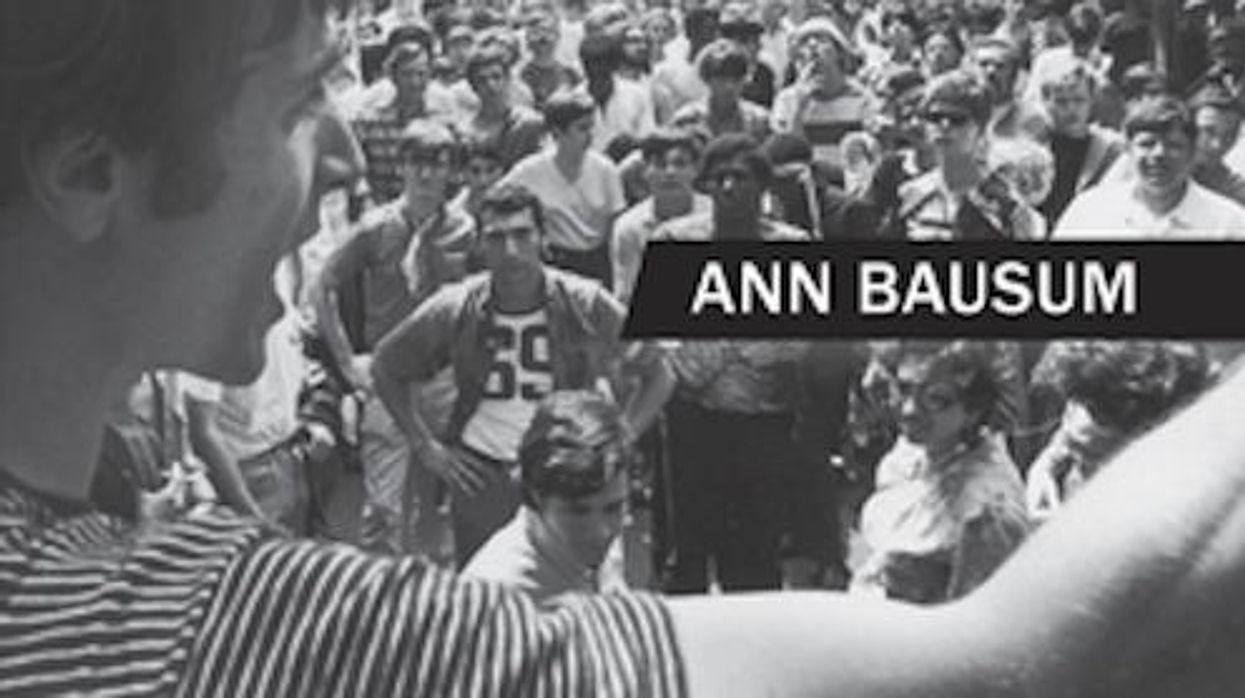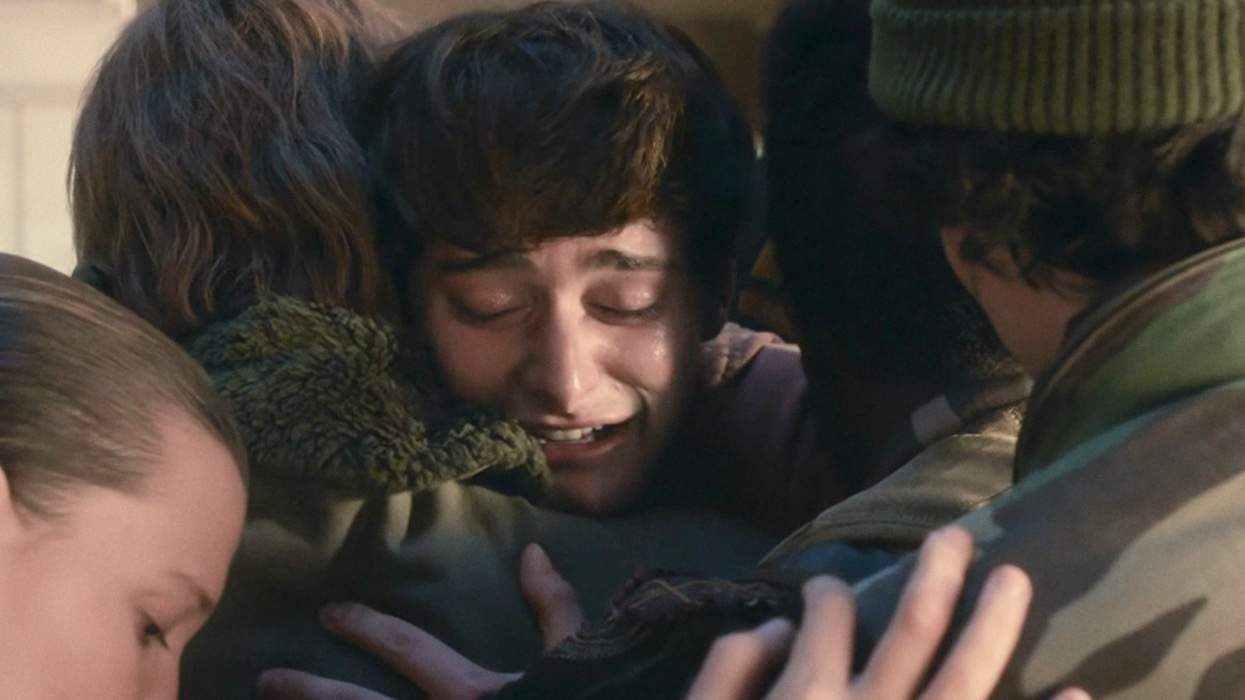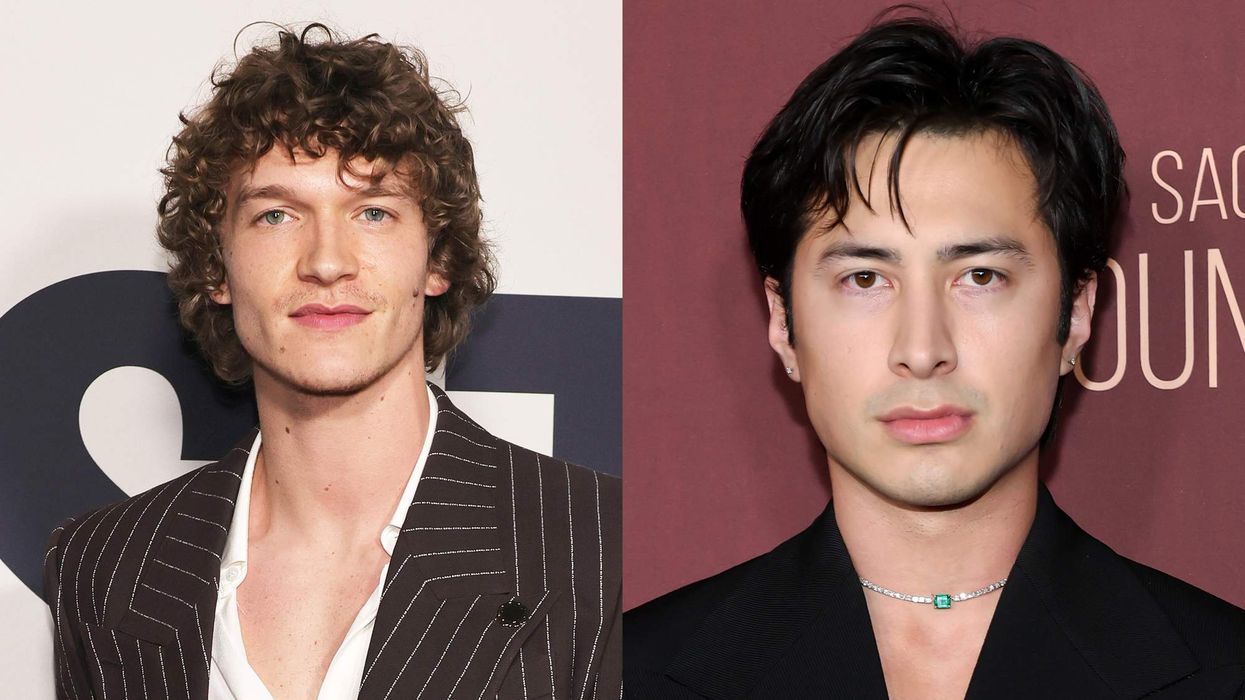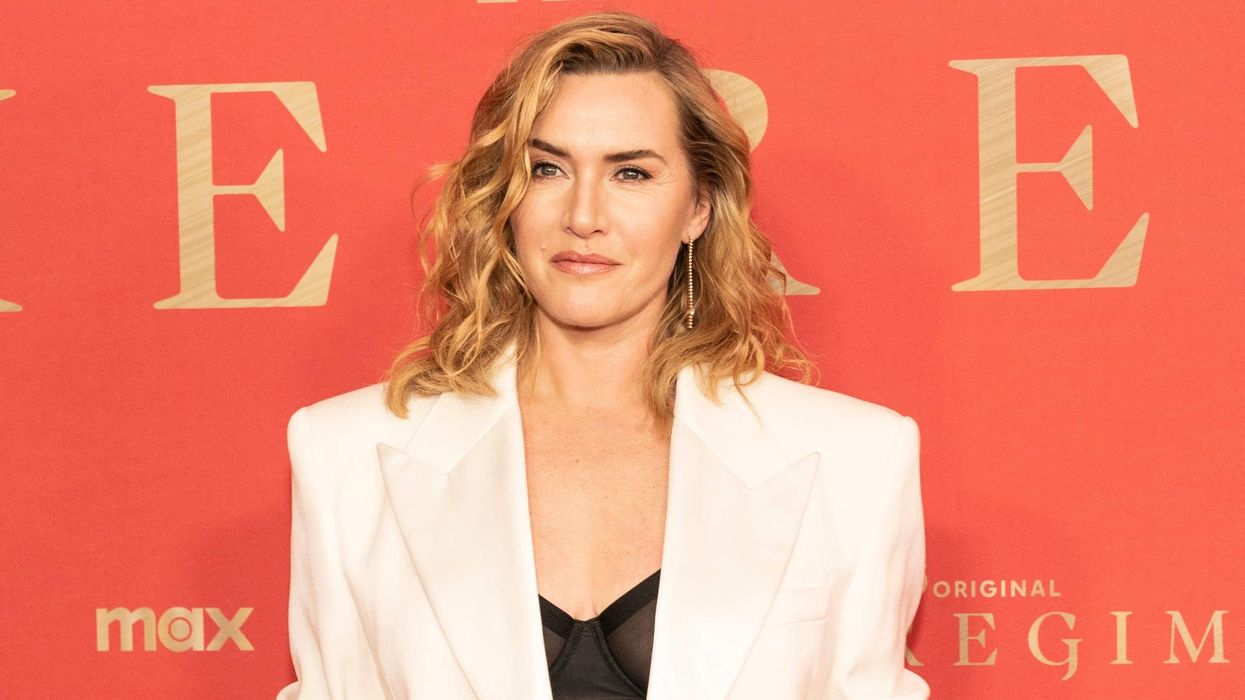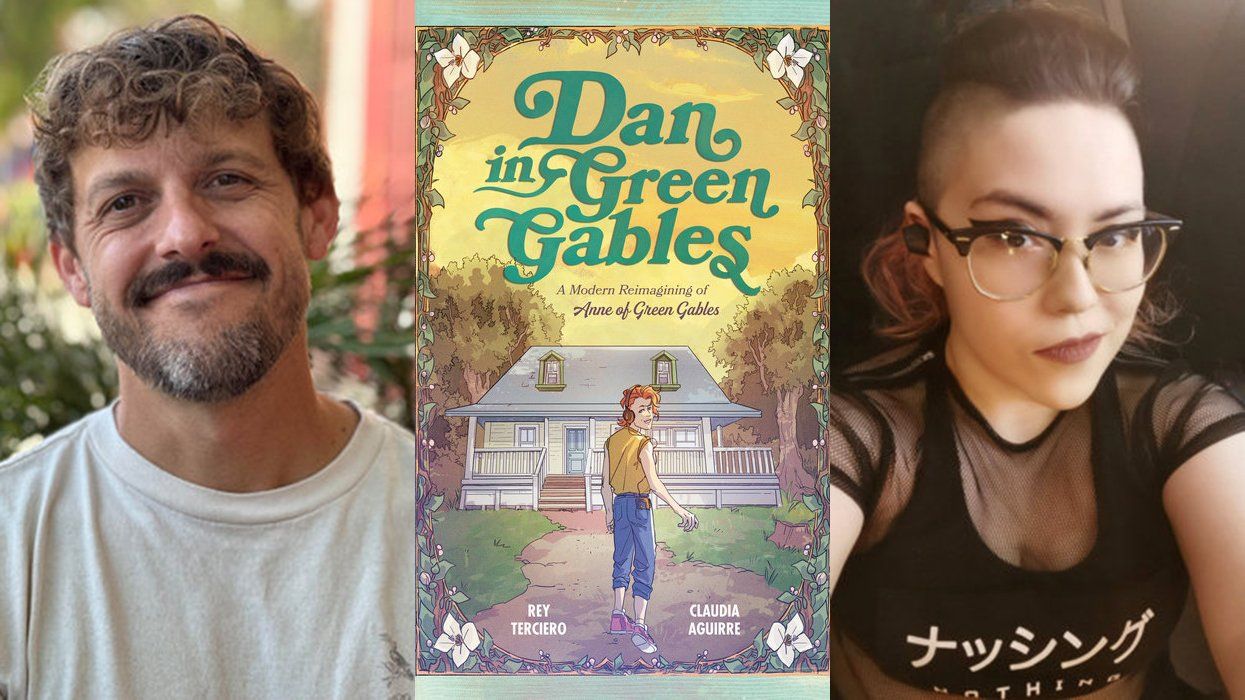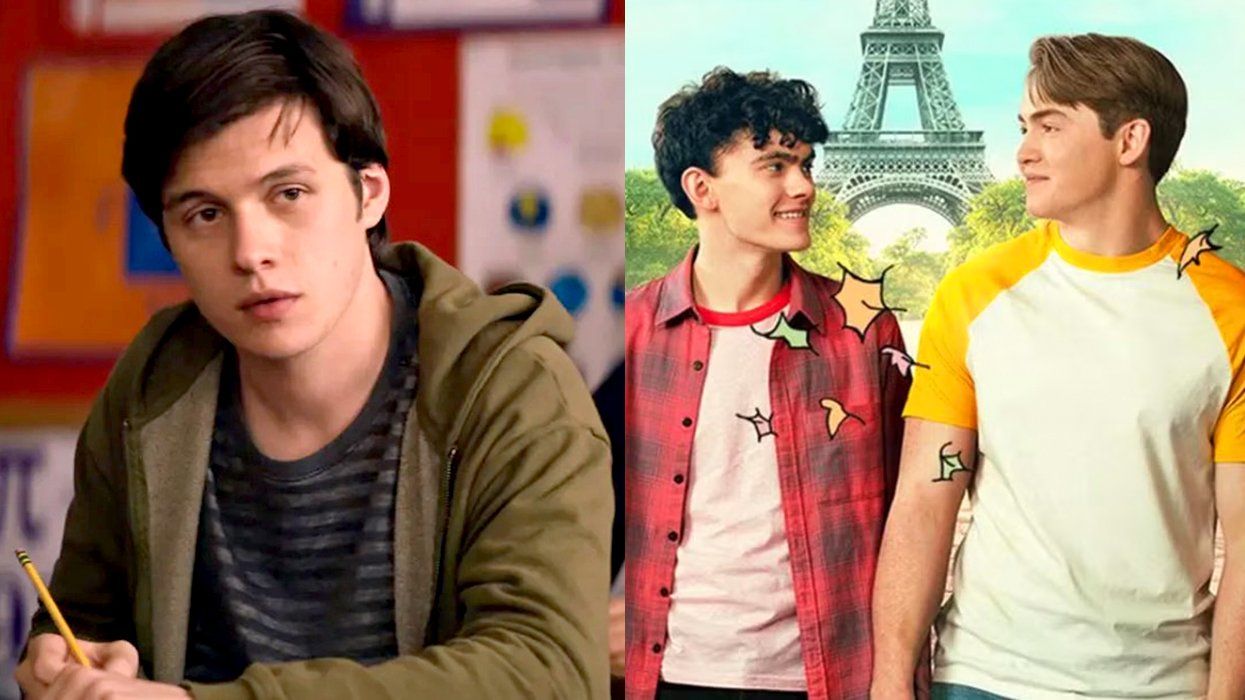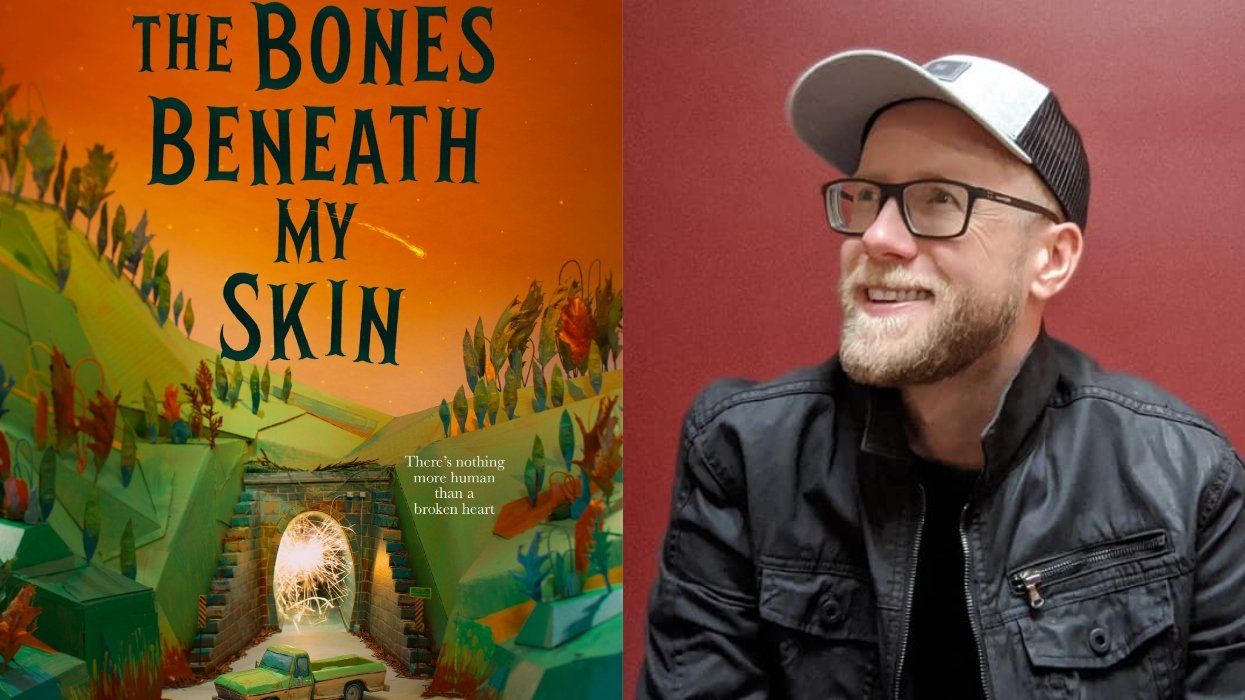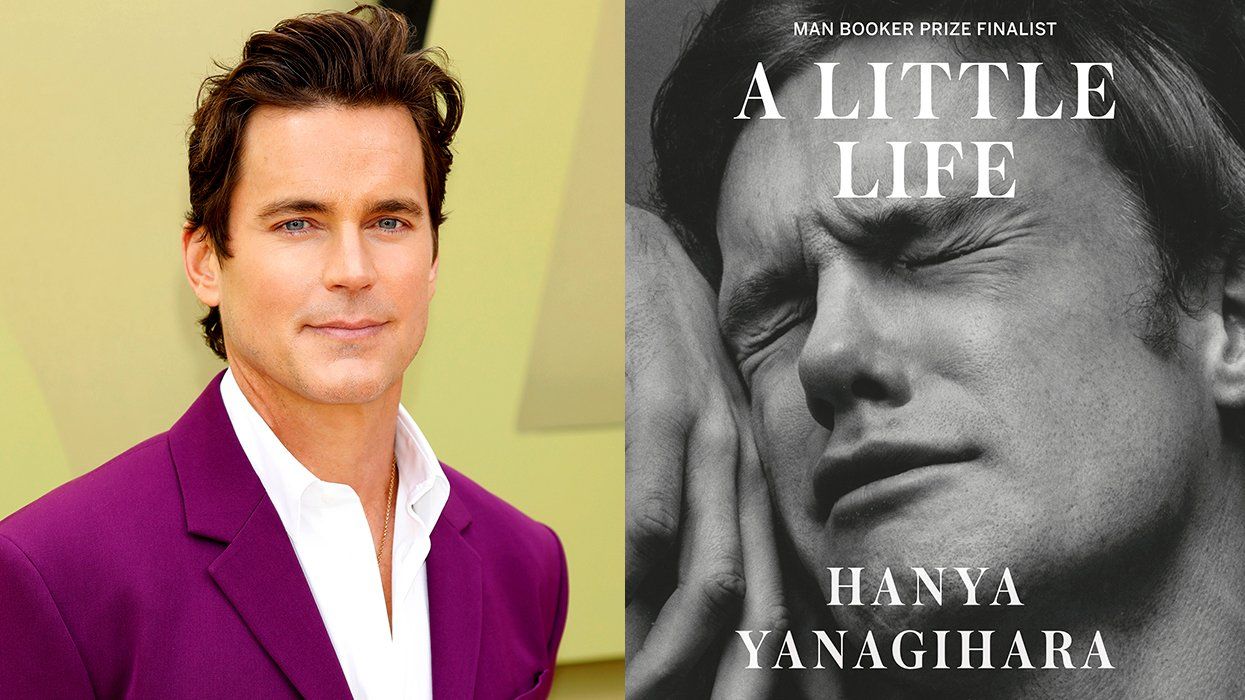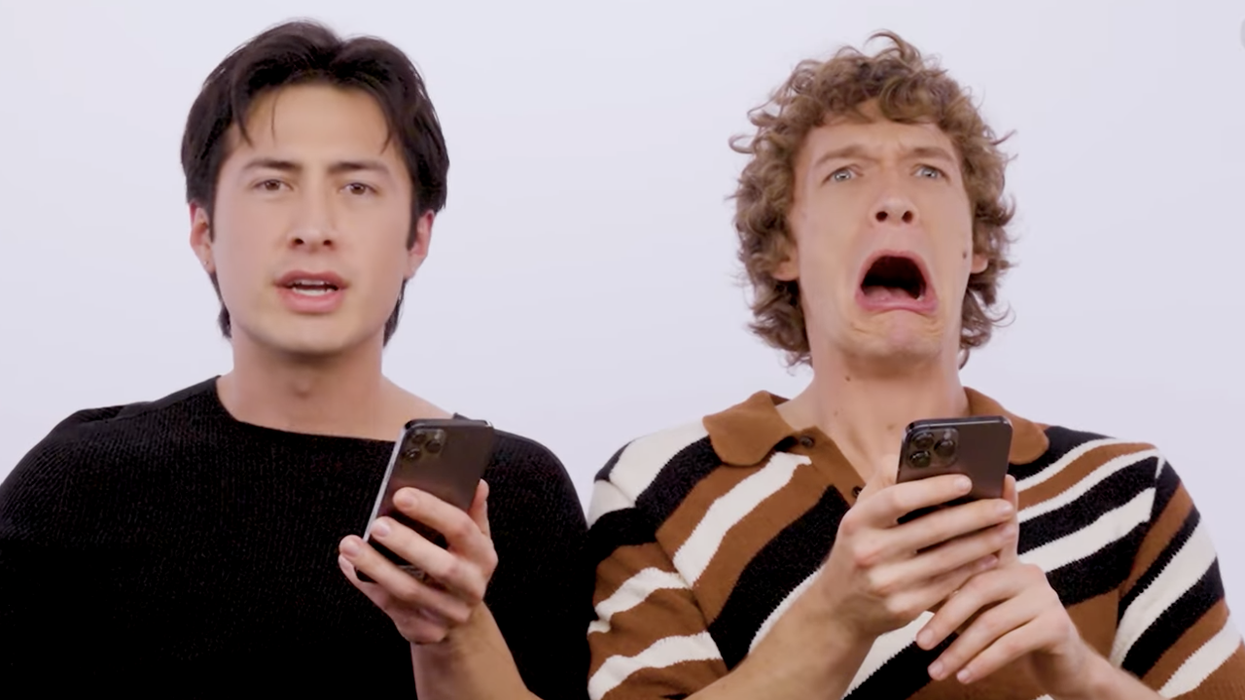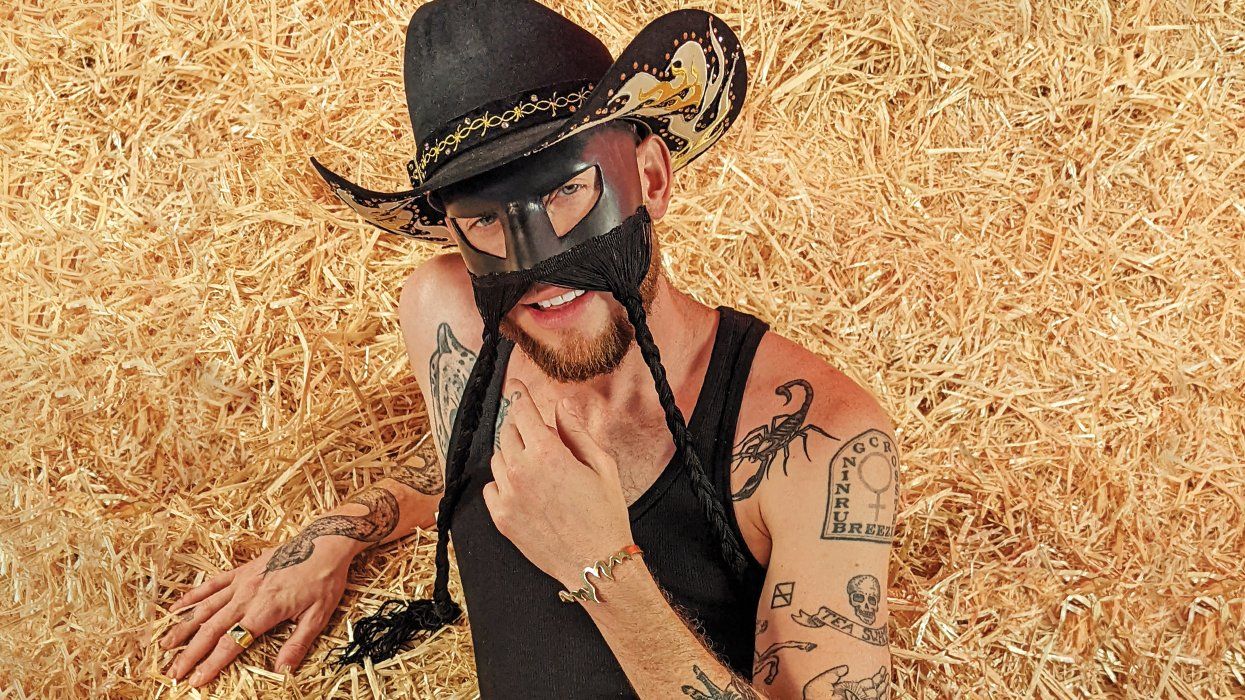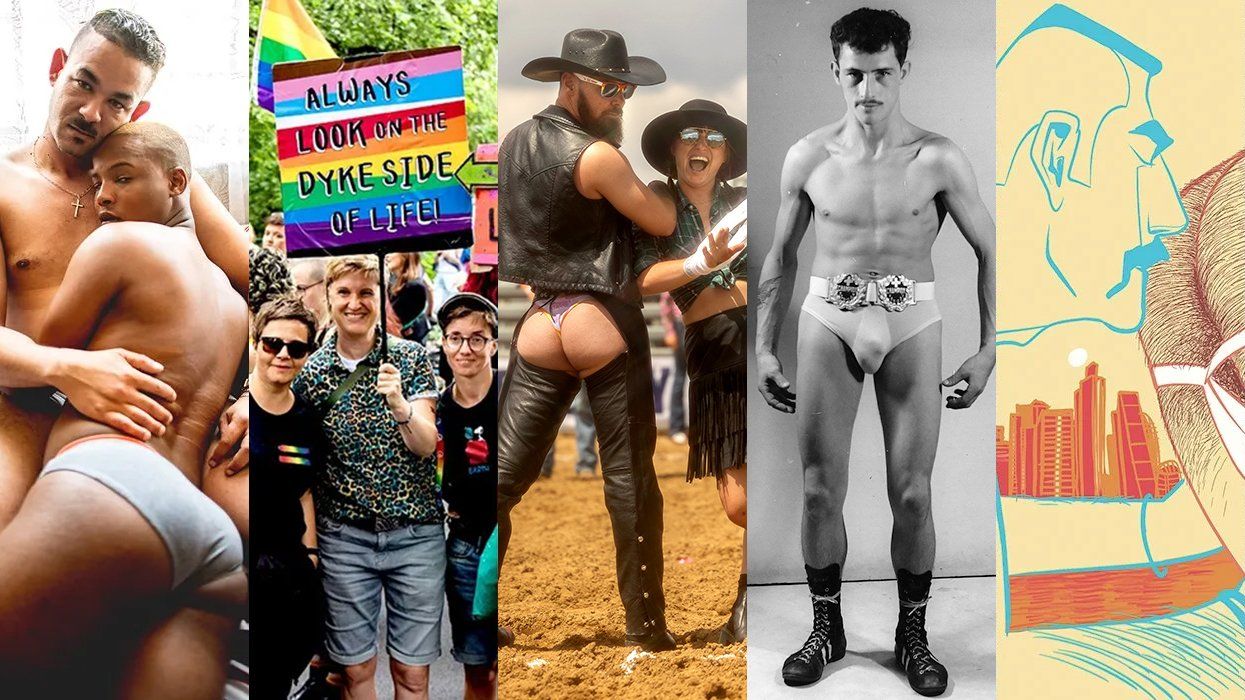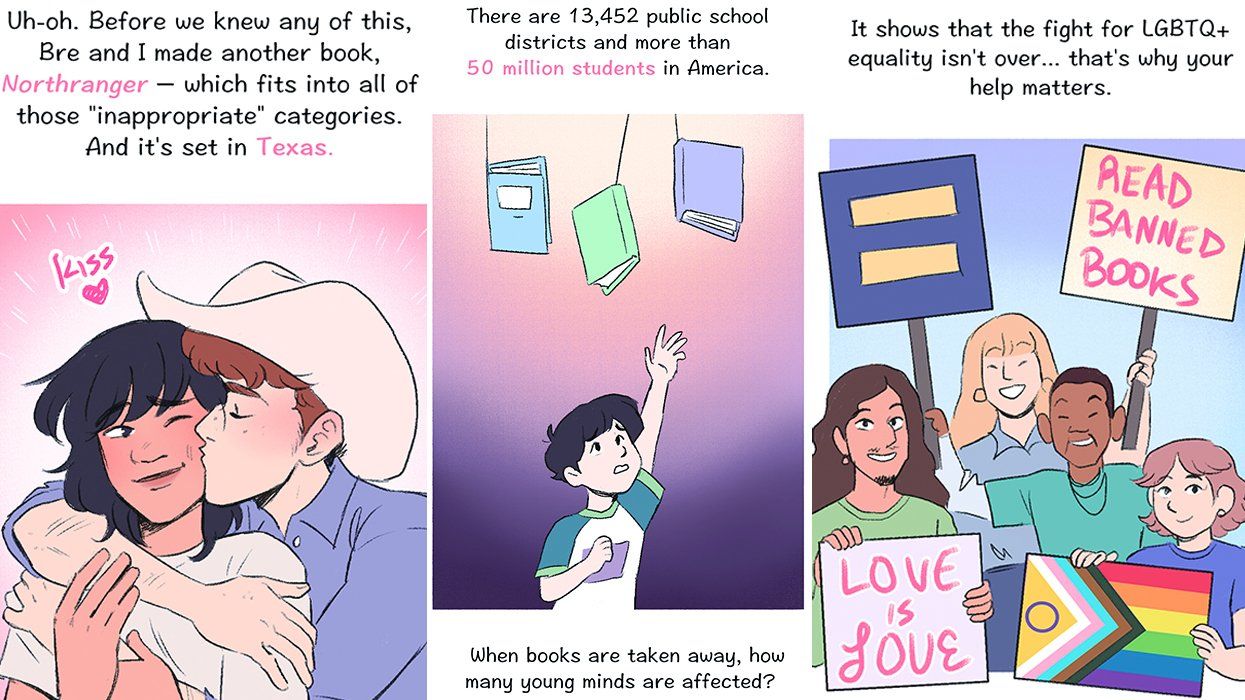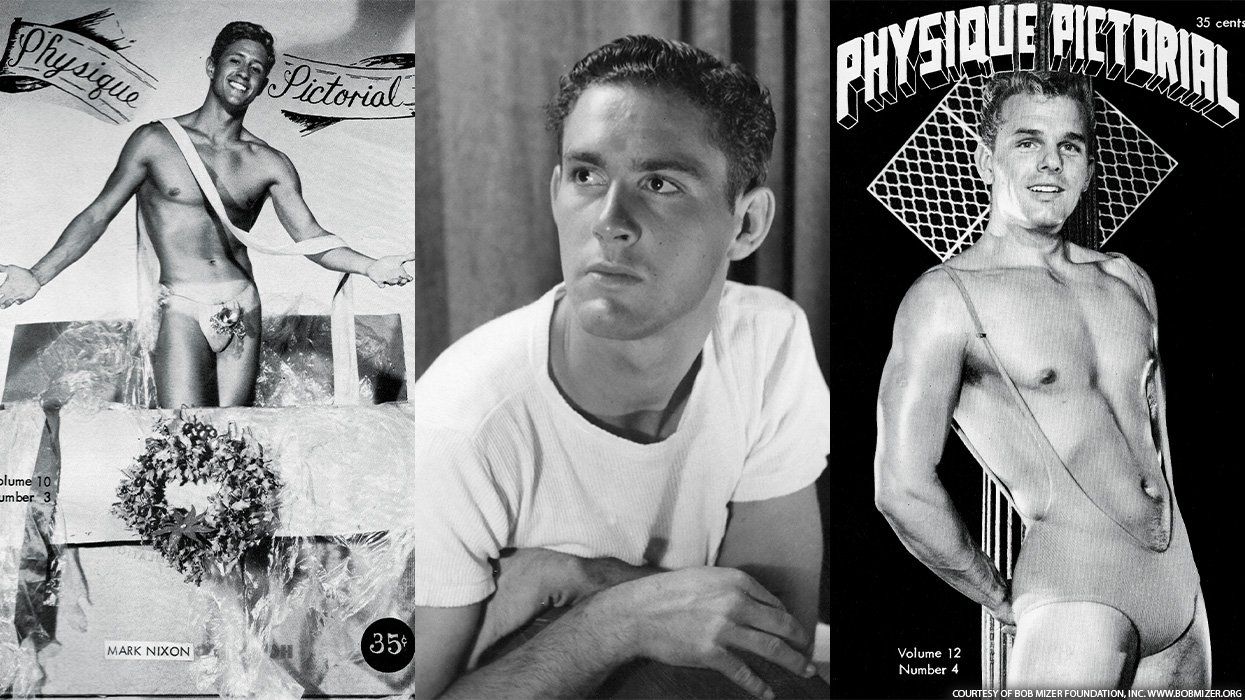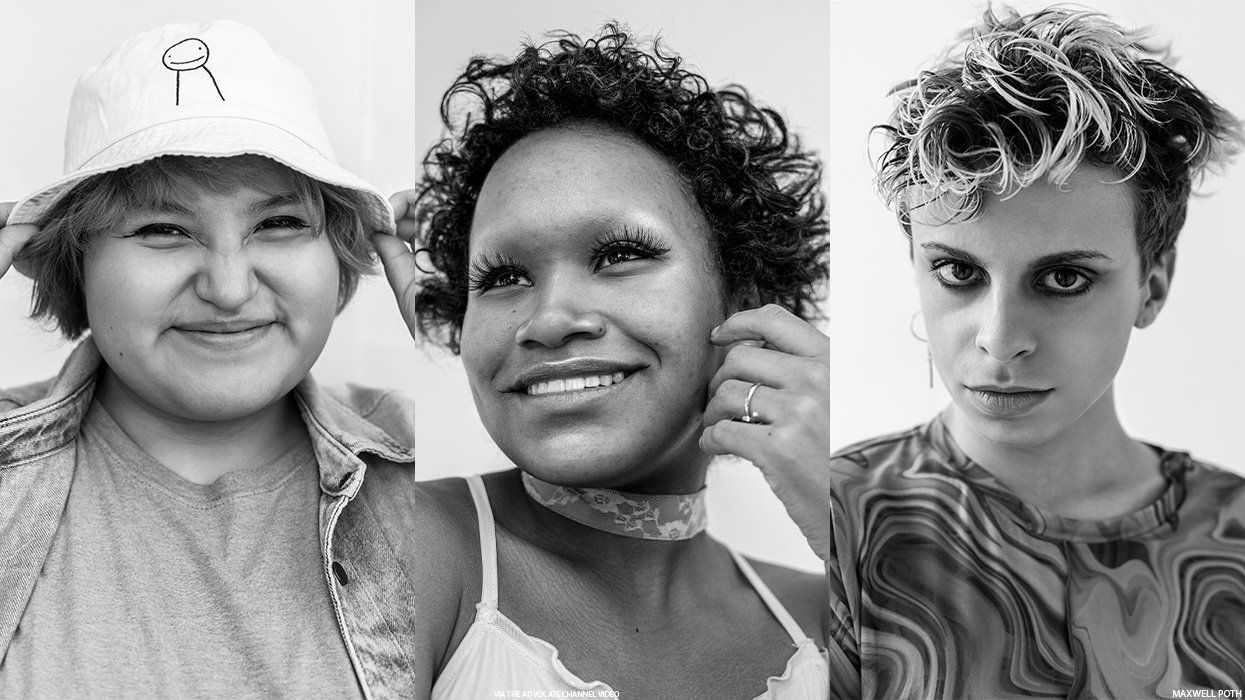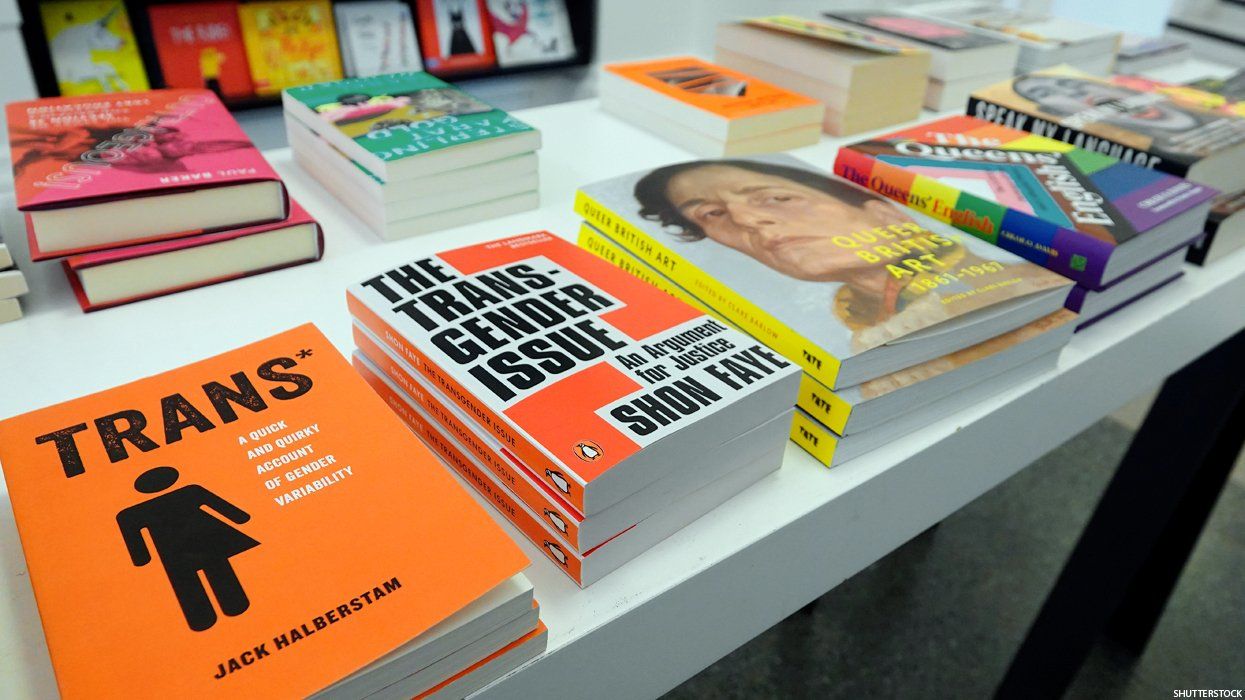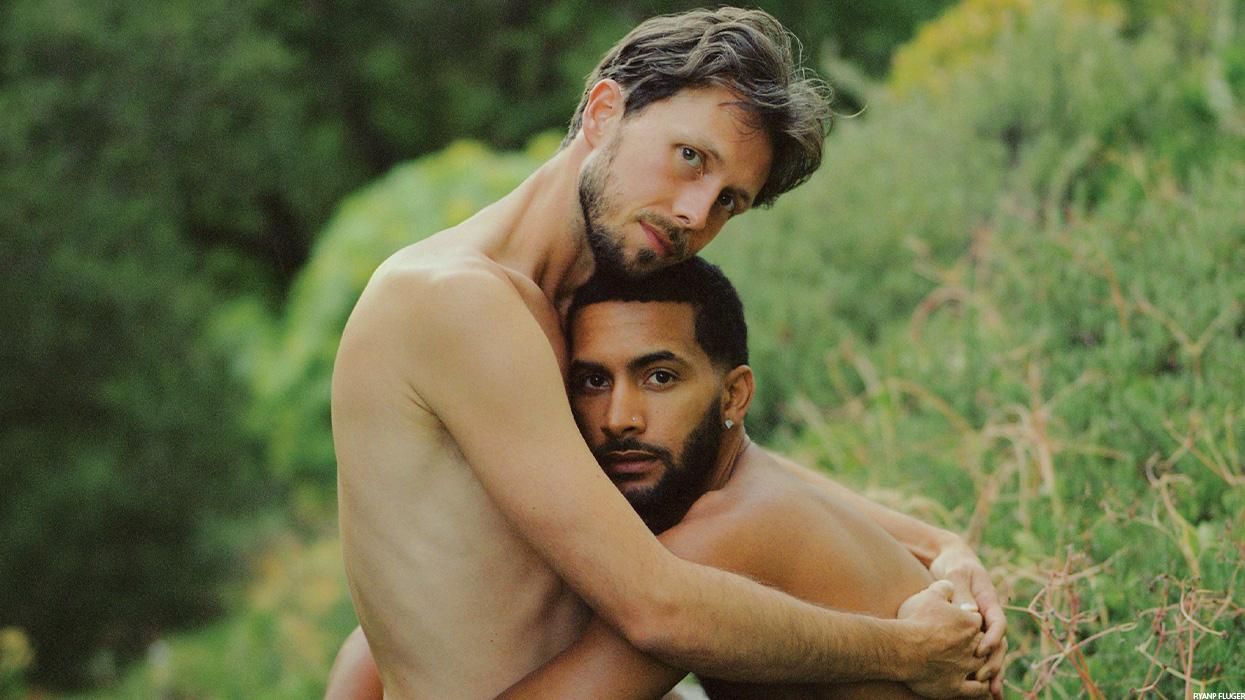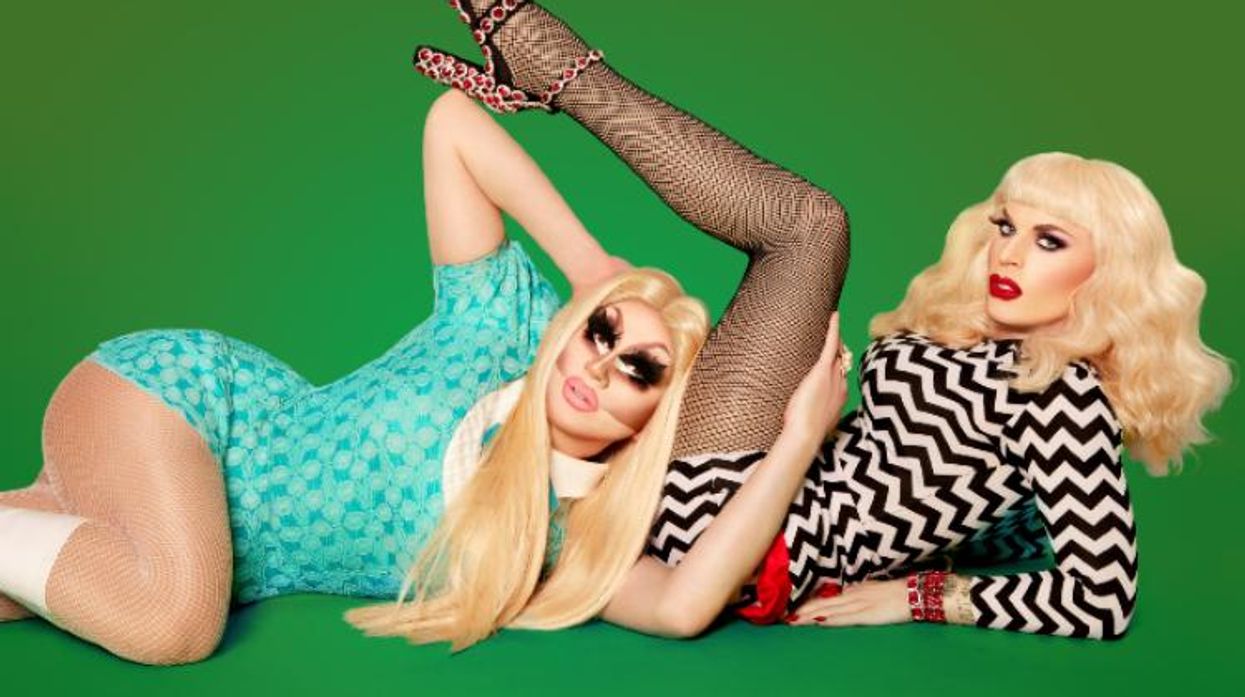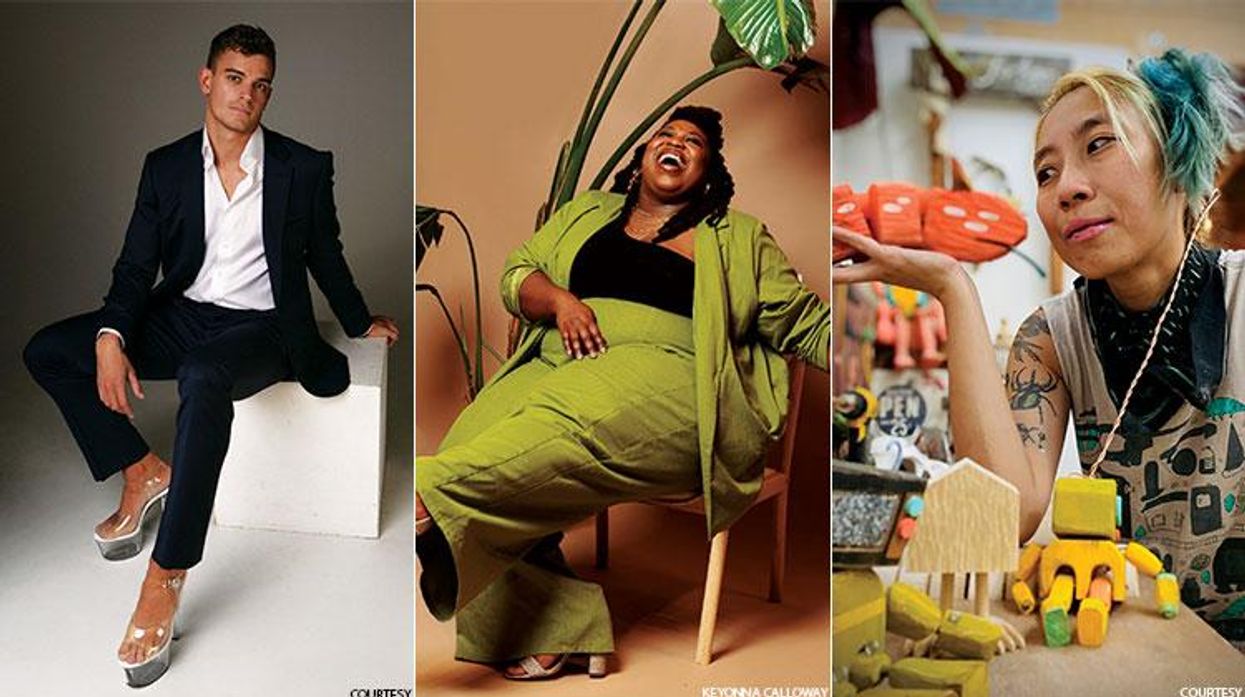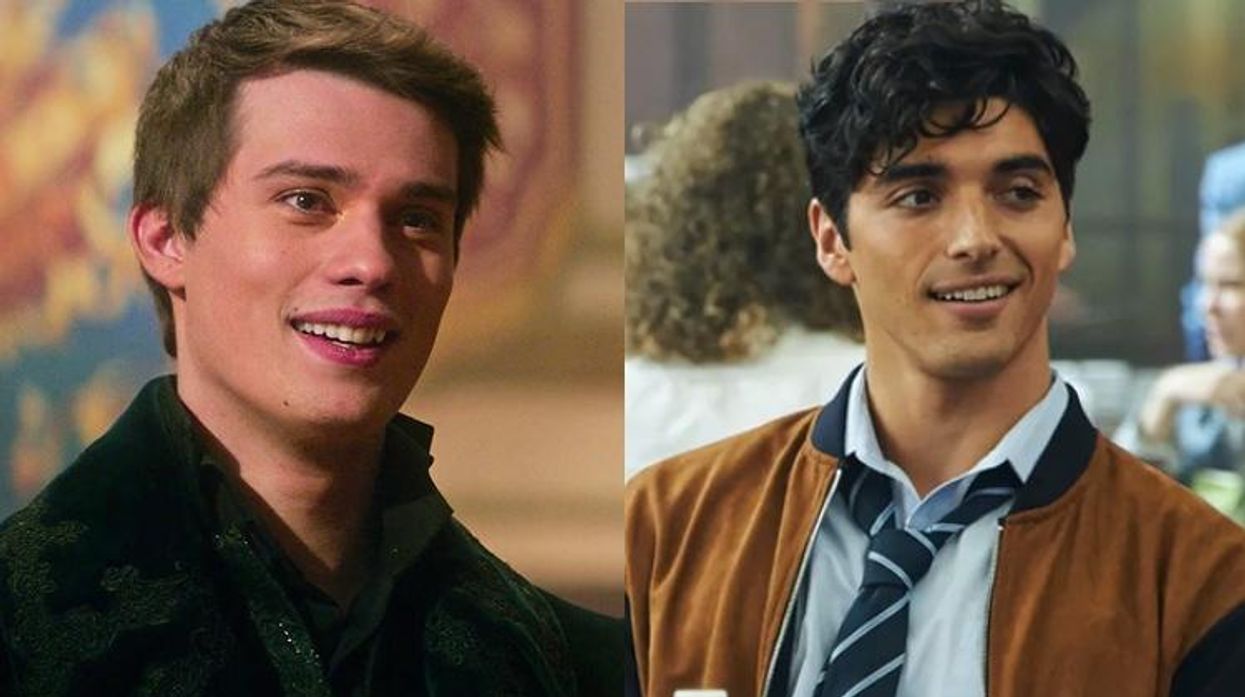Ann Bausum is the biggest name in social justice history for children you probably haven't heard of. She's written extensive, engaging nonfiction accounts of the feminist, civil rights, and now, gay rights movements.
In her new book, STONEWALL: Breaking Out in the Fight for Gay Rights, Bausum's accessible, enaging, and exciting voice has created an extremely important piece of work that should be required reading in schools across America, and will give you a crash course in your gay history facts. The author opened up about what motivates her to write about such important issues and how one ends up with the job title of "social justice historian for young adults."
STONEWALL: Breaking Out in the Fight for Gay Rights is a very cool book. It's coming at such a pivotal time, too, in the history of gay rights. With the Supreme Court expected to give their ruling on gay marriage any day now, do you have any thoughts you want to share on the impending verdict?
Well, I've been optimistic, and really hopeful, of course, and I have to say today's ruling on ObamaCare coming out 6-3 with Roberts clearly siding with the more liberal justices gives me a lot of hope. It's always hard to predict, and I'm certainly not an expert on the court, but all these little things, including the decision not to intervene in state decisions where marriage equality stood, it sure seems to be building, doesn't it? I'm very excited.
Besides the SCOTUS decision, this book comes at such a great time. This weekend is the anniversary of the Stonewall riots, and the first Pride march -- how do you feel about having this book out, fresh on the shelves and in the hands of young readers? Was the intention to release it in conjunction with this stuff?
Well, some of it was intentional, although this book was a long time in coming, I began thinking about it in 2003. And I got serious about it in 2010. Back in 2010 I still had concerns that I would even find a publisher, we just hadn't had that crossover moment that hit during the last election. And when I did begin seriously looking for a publisher, I was so fortunate to find Viking, and they have embraced this book and really supported the idea of trying to bring it out in the most responsible and timely a way we can. We worked hard to complete the book in time for Pride month - I burned some midnight oil on my end and they did as well, and without realizing the extent to which the momentum was building, it sort of all just came together.
I'm one of those authors who writes because I care passionately about my readers and trying to make a difference in their lives. And this isn't the first book I've written about social justice history and it won't be the last. And so, for me, the fact that the book is coming out at a time when it's all the more likely to find its way into the hands of the people that I wrote it for, that's what matters to me. That's like, the hole in one for a golf pro. If the book gets read, I'm happy.
You mentioned a couple important moments during the development of this book -- can you talk about what initially inspired you?
I mentioned I've written about social justice history before, you might've seen on my website I've written about women's rights and so forth, and I believe it was when the Supreme Court ruled on sodomy, banished the sodomy laws, that it just hit me.
First of all, I didn't realize that there were still sodomy laws, I thought those were long gone, which was my ignorance. And then I looked at this social justice fight. Has anybody written about that? That's when the lightbulb went off. It sort of sat in my head that this would be a great book. Then the next question with any project is, well, am I right person to write it? And when you start a project like this, it's like moving in with someone, and you want to make sure it's a good match.
In 2010 two things happened that told me, yes, this is the match for me, and they both happened when I was in South Dakota for a book festival. In the first case I was at a mass book signing, my table was pretty quiet and this woman sidled up to me and looked at all of my books, leaned over and said, "would you please write something like this for young people about gay rights." And it just came from such a deep place within that woman that I thought, wow, you know, I sure would like to. And I know what I would write about, and it would be Stonewall. But I was still a little on the fence. And that same weekend I learned the news of Tyler Clemente's death, and that did it for me. He was a young person. He was a son. I had two sons in college at that time and I could identify with his angst and with the devastation that his family would have felt at his loss. So as a parent and somebody who has been an ally of young people through my work, I'm like, ok. I'm writing this book so that there will be no more Tylers. And that's what kept me going: no more Tylers.
Do you have a personal connection to LGBT issues? Or is it more just the fact that everyone needs a voice, and this was an issue that hadn't been vocalized for young readers as much?
Truthfully this is one of the reasons that I had hesitated to write the book, because I don't have a personal connection in that I'm gay or I know of a family member who is gay. But I have close friends who are gay -- I dedicate the book to one of them -- and so one of the reasons I hesitated was because I wanted to see if someone from within the community would choose to write this book. I didn't want to seem to be usurping a story from someone else's community. There is somewhat of a tradition or respect for that -- that we may defer to minorities to decode their own history et cetera. I wanted to be very respectful of that, and so people, even pepole who were in the publishing community who are gay, lesbian, or transgender, as I began to say I'm thinking about this book, said yeah, you're the person to write that.
You mentioned you have two sons - was it something they were learning, or not learning, in school that prompted you to write about civil rights issues for young readers, or was it completely independent of them. Why did you feel the need to target a younger audience?
I began writing for young people because of my kids and the joy and knowledges I saw them gain from literature. But I write about social justice history because of myself and my background, and the fact that I'm a product of the 1960's and '70s. I think that by living through things like the Vietnam War, the peace movement, Watergate, the civil rights movement, and the feminist movement, and so forth, and in a household where discussions of all of these things were free and open, I was just so inculcated with this sense that justice needed to be fair and equal. It's almost inevitable that it would be the place where I apply my passion as a writer.
So you've written about women's rights, civil rights, and now gay rights. What's next? I know transgender issues are at the forefront of a lot of conversations today, and you talk about that in your book. Is that something you're planning on addressing further? Or is there another pressing issue you see?
I always have a stockpile of story ideas, and I definitely found connections to other pieces of the history of LGBTQ rights and struggles as I was working on STONEWALL material. I'm exploring some of those for additional projects and I have other projects in the works that continue to look at social justice struggles -- I'm kind of in this for the long haul.
One of the very first school visits I ever did, a young student asked, "how many books are you going to write?" And I without really thinking about it said "well, 25 sounds like a good number," so that's kind of become a goalpost for me. I don't know if I'll make it, but Stonewall is number 12, so there are plenty of slots left. I tend to write about history that is far enough in the past so that it actually has a feel of history to it. I'm really glad to see some books that are starting to come out that focus on transgender issues, which have more of a current events feel to me.
Although I think there is a point at which we do need to look back and say, "well what is the historical connection in this community?" And that's something I've been trying to wrap my head around myself as I think about things from a historian's point of view. Beyond Magenta is a great example of a book for young people. It's nonfiction and it threads together interviews from a number of young people who are going through this transition. I think it's a fantastic way to meet the needs of young people, transgender or not, who are trying to wrap their heads around the experiences that they may be going through or that their friends may be going through.
It seems that LGBT youth, and just youth in general, don't really know much about gay history and LGBT history. How do you feel about that and why do you think that is?
Well, I agree with you, that there is a gap of knowledge in what kids know about the past. And I think LGBT history and LGBT people in particular are underrepresented in the nation's story as it is passed down to kids. That is slowly being corrected, for example you have states like California that are mandating the teaching of LGBT history, but that can be scary, too, because not every state welcomes that concept. Some of it is part of that legacy of ignoring that side of the American story, and some of it is that, rather uniquely, I think, the LGBT community has to rely on the word of mouth of other members to pass these stories down. There's not the same kind of oral tradition that you would have, say, if you were raised in an ethnic family, or a family with a certain religious background. A family with people of color where we hear about how young black men are sat down at some point by their families for 'the talk,' -- how to stay safe and how to make it through this tricky age span that they're about to enter.
Because you can emerge anywhere in our population, your parents could be learning right along with you. Your parents might not be supportive of you because they don't know and understand the background. And so I think that compounds the loss of history because there's not the same kind of consistency of it being transmitted within a cultural community.
In commemoration of Pride month, Bausum said the publisher, Penguin, will be marching in San Francisco's parade and is launching a collaboration called "Read Proud, Listen Proud" to connect young readers with LGBT literature. "It's especially exciting because it's the 45th anniversary of the first gay Pride parade in New York," she said, "and it's also falling on the 28th, which is the actualy anniversary of the riots."
After today's historical ruling, Bausum added: "This one is almost beyond words. We've waited and wanted and hungered for this affirmation of human respect, yet held onto our hopes, too, just in case history wasn't ready to catch up with the future that we all so clearly could see. And now, all at once, it's here! And what timing, right?! What a finale for Pride Month. What a lift for the weekend celebrations. The jubilation will last for lifetimes, and that's just as it should be!"
For more on Bausum, see her website here.
STONEWALL: Breaking Out in the Fight for Gay Rights is available now.


